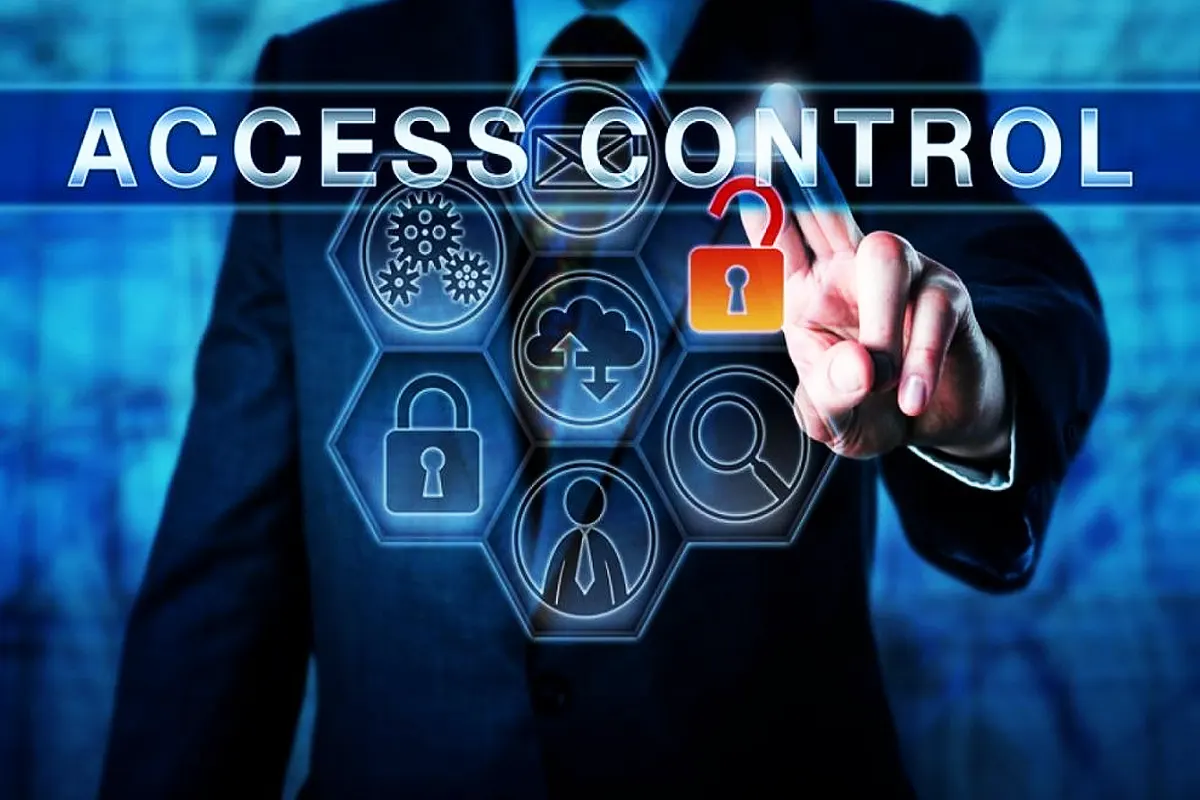So, have you ever wondered, “What is access control in security?” Well, you’re definitely not alone! Since I first heard about it, I kept imagining high-tech laser beams blocking unauthorized people from sneaking into secret rooms—just like in the movies. But in reality, access control is actually everywhere, and it even applies to the simplest things we do every day!
My First Encounter with Access Control (A True Story!)
So, picture this: I was at my friend’s office, and I was trying to get inside a meeting room, but guess what? The door wouldn’t budge! Since I didn’t have a keycard, I had no access. That, my friend, is physical access control working exactly as intended!
But access control isn’t just about locked doors. Instead, it’s also about digital security, such as passwords and biometric scans that protect our online data from unauthorized access.
The Two Main Types of Access Control
So, let’s break it down! There are two major categories when it comes to access control:
- Physical Access Control – Since keycards, PIN codes, and fingerprint scanners exist, security is much tighter.
- Logical Access Control – Because passwords, two-factor authentication, and biometric logins exist, digital security stays strong.
Since both of these work together, only the right people can gain access to sensitive locations or information.
Why Access Control is So Important (From My Own Experience!)
So, let’s be honest—without access control, everything would be chaotic! Since I once forgot to lock my laptop at a coffee shop, someone almost got into my work files. Because of that incident, I quickly realized how vital logical access control actually is!
Since security is crucial, here are the key reasons access control matters:
- Prevents unauthorized access – Since hackers exist, security must be a priority!
- Protects sensitive data – Because identity theft is a real risk, extra precautions are a must!
- Enhances security for organizations – Since companies have trade secrets, security measures must be strict!
Types of Access Control Methods
So, now that we know why it matters, let’s talk about the different ways access control is implemented!
- Discretionary Access Control (DAC) – Since the owner decides who gets access, this method offers flexibility.
- Mandatory Access Control (MAC) – Because strict classifications exist, only authorized personnel gain entry.
- Role-Based Access Control (RBAC) – Since access depends on roles, different users have different levels of security.
- Attribute-Based Access Control (ABAC) – Because multiple factors matter, security policies stay dynamic.
How I Use Access Control in Daily Life
So, without realizing it, access control is already part of your everyday routine:
- Smartphones with Face ID or PIN codes – Since only you can unlock your phone, personal data stays protected.
- Online banking with two-factor authentication – Because of extra security layers, hackers can’t easily break in.
- Work emails with secure logins – Since confidential files need protection, access is always restricted.
Also Read: Where to Place Security Cameras Outside Home (Best Spots!)
Best Practices for Better Access Control
So, if you want better security, here’s what I’ve learned along the way:
- Use strong, unique passwords – Because easy passwords get hacked fast, stronger ones are a must!
- Enable multi-factor authentication – Since extra steps prevent breaches, security stays stronger!
- Regularly update security settings – Because outdated systems are risky, updates are necessary!
- Limit access to only necessary people – Since not everyone needs admin rights, keep permissions strict!
- Stay vigilant against phishing attempts – Because fake emails trick people, extra caution is needed!
Also Read: Best Cameras for Construction Sites – 2025’s Top Picks!
Future of Access Control – What’s Next?
So, since technology advances every day, access control is getting even smarter! Because of that, here’s what’s coming:
- AI-powered security systems – Since artificial intelligence detects threats, security is becoming proactive.
- Biometric authentication everywhere – Because passwords can be stolen, fingerprints and face scans will dominate.
- Blockchain for secure access management – Since data tampering is a risk, decentralized security will be the future!
Also Read: Hotel Room Key Card System Price – Top 5 Picks for Hotels!
FAQs About Access Control
❓ What is access control in security?
✔️ Since security matters, access control ensures that only authorized individuals can enter a place or access data.
❓ What are the 4 types of access control?
✔️ Because different methods exist, access control includes Discretionary Access Control (DAC), Mandatory Access Control (MAC), Role-Based Access Control (RBAC), and Attribute-Based Access Control (ABAC).
❓ Why is access control important?
✔️ Since unauthorized access is risky, security measures are essential for protecting information.
❓ What’s the variation between physical and logical access control?
✔️ Because physical access control protects locations and logical access control protects digital data, both are necessary for complete security.
❓ How can I improve my personal access control security?
✔️ Since security threats exist, using strong passwords, enabling multi-factor authentication, keeping software updated, and avoiding credential sharing are all crucial steps.











